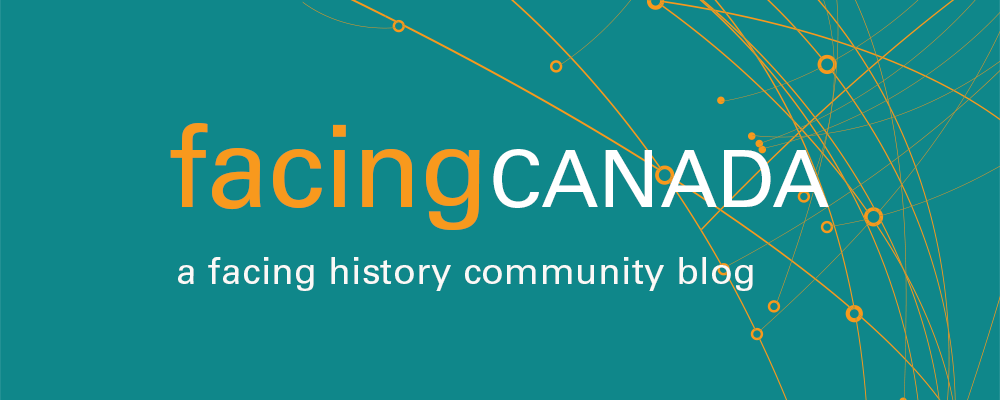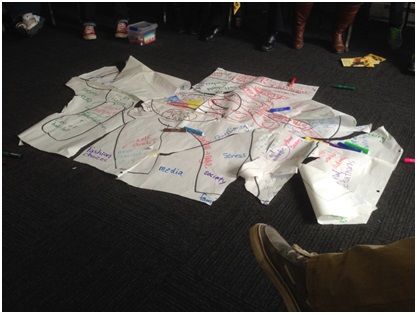Earlier this year I had the honour of presenting a workshop at the Elementary Teachers of Toronto LGBTQI Teacher Conference at Ryerson University. I described the workshop as:
An interactive, participatory drama and movement workshop using the text “The Bear That Wasn’t” to explore our struggles with identity, how our identities are shaped by others and societal expectations and our battle to find our true selves.
This was a cross-curricular exploration targeted to junior/intermediate teachers who wished to begin conversations about LGBTQI issues in their classrooms, while integrating language and the arts.
The Bear That Wasn’t, by Frank Tashlin, is a modern parable about a big brown bear who struggles with his identity because of outside influences that attempt to shape him. At my workshop, participants read the story and explored external factors shaping the Bear’s identity. We then connected this conversation with participants’ own experiences.
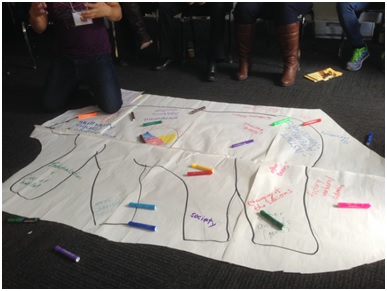
Participants spoke about the factors that shaped and influenced their own identities. First, we explored the factors that impacted them in negative ways. For instance, some LGBTQI-identiifed teachers spoke about times that religion made them feel ashamed and wrong. As the teachers shared their negative experiences and feelings they tore large pieces off of our bear until finally we were left with a bear that was torn apart.
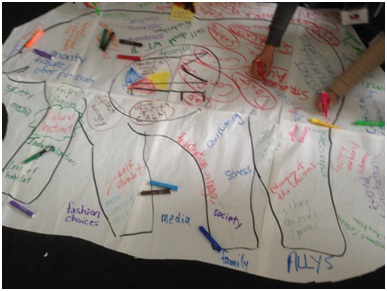
After each educator spoke, we shared the positive ways that outside factors can shape one’s identity. For instance, people spoke about having a sense of national pride of their unique family and cultural backgrounds. As the teachers talked, they taped the pieces of the previously torn bear back together. By the end of this section, the participants were left with a bear that was changed; not quite complete, scarred, reshaped and fragmented. For many, this visual was a vital piece in understanding that despite the fact that the world can shape positive aspects of our identities, pain and scars still remain.
The educators reflected on the power of this visual, and felt that it would help students to understand concepts of identity better. They commented that because many students are such visual learners, conceptual ideas such as identity, can be easier to understand by seeing this visual of a torn and refashioned bear. Because this was a drama and dance workshop, they also expressed the positive and negative feelings kinesthetically through movement and dance.
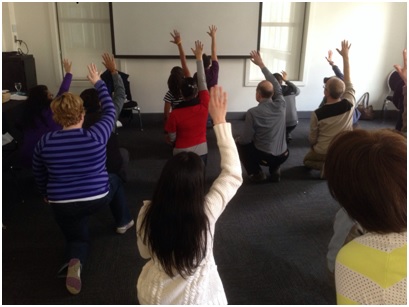
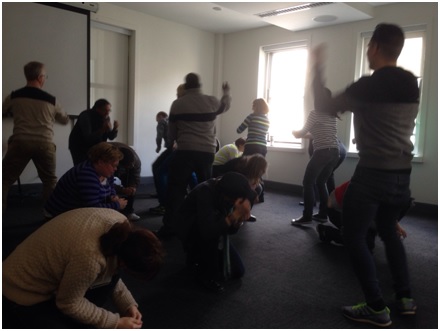 Workshop participants exploing positive and negative feelings through drama and dance.
Workshop participants exploing positive and negative feelings through drama and dance.
This workshop, inspired by my work with Facing History and Ourselves in my own classroom, helped teachers help their students engage in difficult conversations. Teachers can also use this activity to assess the level of knowledge and readiness of students to talk about sexual orientation and gender identity, and adjust the pace of the learning accordingly. Conversations about LGBTQI issues can be opened up in a non-threatening, less intimidating way because the activity facilitates discussions not just about LGBTQI issues. It enables the participant to reflect upon who one is, and the forces that have shaped one’s identity.
What resources do you use in your classroom to engage students in conversation about LGBTQI issues?
What are some of the barriers that prevent educators from engaging in these important conversations?
Trasnform your teaching today! Sign up for the Facing History and Ourselves Holocaust and Human Behavior Summer Seminar! Scholarships are available.
